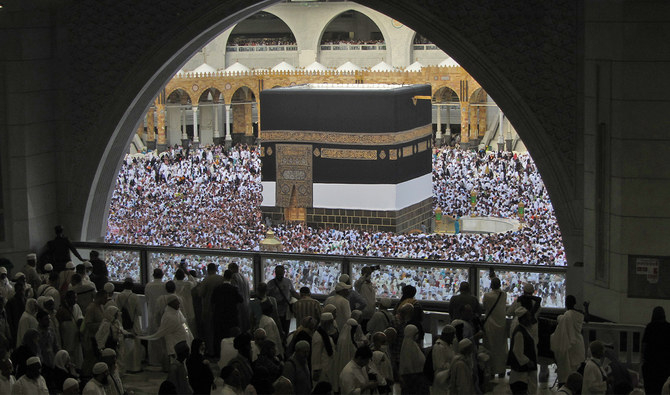
Hajj begins, pilgrims converge in Makkah, Arafa congregation tomorrow
text_fieldsThis year's Hajj pilgrimage, an essential pillar of Islam, has drawn over 1.5 million Muslims from around the world to Makkah, with numbers expected to exceed 2 million. The pilgrimage comes amid intense regional conflict, particularly the ongoing war in Gaza, which has prevented Palestinians from the coastal enclave from participating due to the closure of the Rafah crossing.
Despite the conflict, the Saudi government has extended invitations to 1,000 Palestinians from the families of those killed or wounded in Gaza. These individuals, already outside Gaza before the crossing's closure, have joined 4,200 pilgrims from the West Bank in performing the Hajj.
The pilgrimage commenced with the ritual circling of the Kaaba in the Grand Mosque, Islam’s holiest site. Following this, pilgrims moved to the vast tent camp in Mina, marking the official start of the Hajj. In the coming days, they will participate in several key rituals that hold deep spiritual significance, commemorating events from the lives of Prophet Ibrahim, his son Prophet Ismail, and Ismail’s mother Hajar.
The Hajj is a physically demanding journey, often undertaken by Muslims once in a lifetime after years of saving and waiting for the necessary permits. Pilgrims don the ihram, a white cloth symbolizing purity and equality before God. Over five days, they perform a series of rituals, including a daylong vigil on Mount Arafat, which holds historical significance as the site of the Prophet Muhammad’s Farewell Sermon.
Syrian pilgrims have travelled to Makkah on direct flights from Damascus for the first time in over a decade, reflecting a shift in regional dynamics and offering easier access for those from conflict-affected areas.
Saudi authorities have implemented stringent security measures to manage the massive influx of pilgrims. Checkpoints have been established on roads leading to Makkah to ensure only those with proper permits can enter. Authorities have also arrested individuals attempting to transport unauthorized pilgrims and imposed fines and jail terms on non-compliant travel agents.
The pilgrimage period this year falls during the peak of summer, with temperatures soaring above 40 degrees Celsius. The Saudi Health Ministry has warned of temperatures reaching 48 degrees Celsius at the holy sites. To mitigate the heat, charities distributed cold water and set up cooling stations in Mina, while many pilgrims carried umbrellas for shade.
Following the vigil on Mount Arafat, pilgrims will move to Muzdalifa to collect pebbles for the symbolic stoning of the devil in Mina. This ritual coincides with Eid al-Adha, during which Muslims worldwide slaughter livestock and distribute the meat to the poor. The pilgrimage concludes with the Farewell Tawaf, a final circumambulation of the Kaaba.
The Hajj, a profound spiritual journey, aims to absolve sins and bring pilgrims closer to God while fostering unity among the global Muslim community. This year’s pilgrimage is particularly poignant given the regional strife, highlighting the resilience and dedication of the faithful.
After the severe restrictions imposed during the COVID-19 pandemic, the Hajj has resumed its monumental scale. In 2023, the number of pilgrims nearly returned to pre-pandemic levels, with over 1.8 million participants. The large turnout this year underscores the enduring significance of the Hajj in the lives of Muslims around the world.
As the Hajj progresses, pilgrims will continue their sacred rituals, navigating both the physical challenges of the journey and the broader geopolitical tensions impacting their communities. This pilgrimage not only embodies a deep religious devotion but also serves as a powerful reminder of faith and perseverance amidst adversity.























